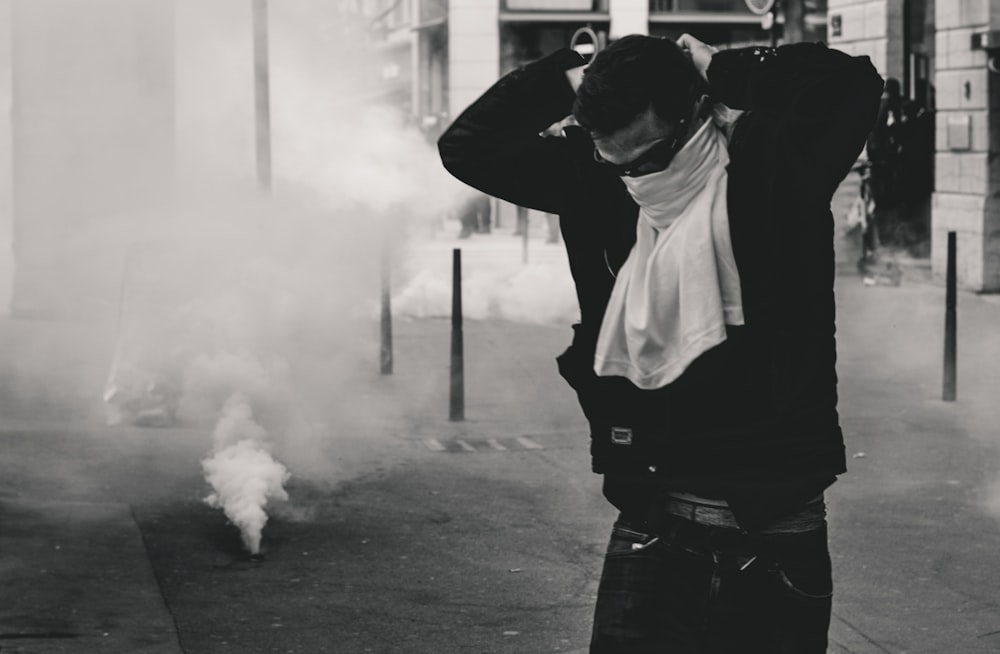
On the night of 23 February 2020, a series of riots and violent incidents began in the Jaffrabad area of North East Delhi in which 46 people were killed and more than 200 people were injured.
After the Parliament of India passed the Citizens Amendment Act on 11 December 2019, protests were held against the Citizenship Amendment Act and the National Register of Citizens across India. The protests in New Delhi witnessed clashes between the protesters and the police with instances of arson. In Jaffrabad anti-CAA protesters had begun a sit-in which blocked a stretch of the Seelampur–Jaffrabad–Maujpur road.
On 23 February 2020, Bharatiya Janata Party (BJP) leader Kapil Mishra demanded the Delhi Police to clear roads that had been occupied by protesters, and threatened to forcefully end the protests if the police failed to do so. By the next day, a riot had ensued in North East Delhi. The riot continued for several days and there was widespread destruction of properties —three mosques were burned, a temple was damaged, and several schools, shops, houses and vehicles were torched by rioters; 46 people were killed and 70 were injured. As of 28 February 2020, the police had registered 123 FIRs and arrested or detained around 600 individuals involved in the violence.
Background
Protests began across India in December 2019 in response to the passage of the Citizenship (Amendment) Act (CAA), which allows fast-tracked naturalisation for immigrants from neighbouring countries belonging to all religions except Islam. The Act has been seen as discriminatory to Muslims and threatening to their existence in India when combined with the anticipated National Register of Citizens (NRC).
Reactions
- On 25 February the Chief Minister of Delhi, Arvind Kejriwal stated that the Police, despite its efforts, was unable to control the violence and requested the Army's assistance in stopping the violence as the number of deaths climbed to 23.
- Indian National Congress president Sonia Gandhi held a press conference where she demanded that Shah should resign for failing to stop the violence. She asked for the deployment of an adequate number of security forces.
- After three days of violence with 20 deaths, the Prime Minister of India, Narendra Modi, shared a message on Twitter asking people to maintain peace. It was noted that he reacted only after the departure of President of the United States Donald Trump, whom he had been hosting on a state visit while the riots began and Trump's visit also included the inauguration of the Motera cricket stadium.
- On 26 February, the US Commission on International Religious Freedom (USCIRF) conveyed “grave concern” over the riots and requested the Indian government to provide protection to people, no matter which faith they belonged to.
Response by Government
On the morning of 25 February 2020, the Chief Minister Arvind Kejriwal chaired an urgent meeting of all-party MLAs from the violence-hit areas and senior officials. Several MLAs raised concerns on the lack of deployment of enough policemen. The concerns were raised by Kejriwal in the subsequent meeting chaired by Home Minister Shah and attended by Delhi Lieutenant-Governor Anil Baijal and senior police officials. The meeting concluded with the decision to take all possible steps to contain violence. Kejriwal stated that Shah had assured the availability of an adequate number of policemen.
National Security Advisor Ajit Doval was given the responsibility of restoring peace in the region. On 26 February, Doval travelled to the violence-hit regions and talked to locals, assuring them of normalcy.
Delhi Government Announcements
- On 27 February, Kejriwal announced free treatment for the injured in government as well as private hospitals under the Farishta scheme.
- The government had made arrangements with the help of NGOs to supply food in areas where a curfew had been imposed.
- He also announced a compensation amount of ₹10 lakh (US$14,000) to affected people, ₹1 lakh (US$1,400) ex-gratia, and ₹5 lakh (US$7,000) in the case of a death of a minor.
- He also announced that the Delhi government had set up nine shelters for the people affected by the riots.
- For people whose houses were completely burnt, immediate assistance of ₹25,000 (US$350) was announced.
- Food and other relief materials were distributed with the help of Resident welfare associations and NGOs.
Written by: Harshit Agarwal
Want to join the Eat My News's global community? Here is an opportunity to join the Board of Young Leaders Program by Eat My News. Click here to know more: bit.ly/boardofyoungleaders









0 Comments